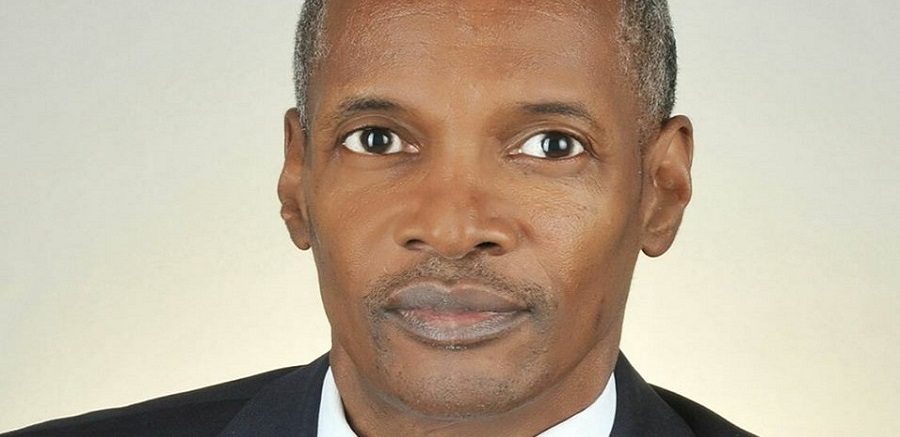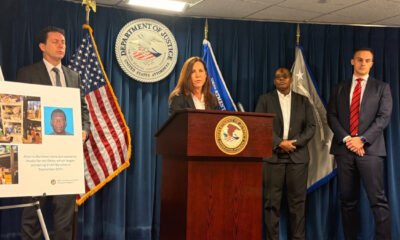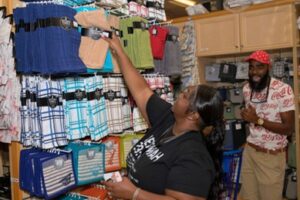#Bahamas, April 24, 2018 – Nassau – The Hon. Desmond Bannister, Minister of Public Works, called on members of the House of Assembly to unite in their opposition to murderers, drug dealers and human traffickers, and underscored that Parliament will leave “no stone unturned” in its efforts to empower the courts to convict those who are truly guilty of such “heinous” crimes.
Minister Bannister addressed the Criminal Evidence (witness anonymity) Amendment Bill, 2018 in the House of Assembly, Wednesday, April 18, 2018. He described the Bill as a “very critical” amendment to criminal law, which is meant to make a difference for all who have respect for the rule of law, and who have confidence in the delivery of justice. “It is a very short Bill, but it has the potential to change lives and to save lives. This is a very serious debate,” he said.
“Over the past decade vicious criminals and criminal gangs have sought to subvert justice by intimidating witnesses all over the world. They have threatened and murdered witnesses, and in the process they created a climate of fear for many persons who have witnessed criminal activity, and who wish to give evidence in the courts.”
Minister Bannister cited R. v. Davis, a case decided in the English House of Lords in 2008. He said just 33 days after the decision on 21st July, 2008 the Criminal Evidence (Witness Anonymity) Act became the law in England. That Act permitted anonymous witnesses to give evidence in court in certain circumstances.

He also recalled that in response to gang related crime and the terrorizing of witnesses, and in order to protect the credibility of the judicial system, the Bahamas Parliament passed a Criminal Evidence (Witness Anonymity) Act in 2011 which became law on November 3rd, 2011.
“Subject to certain protections, the law now permits a Magistrate to grant an Order which prohibits the disclosure of information that may lead to the identification of who may be willing to assist the authorities in very serious cases such as murder; manslaughter; rape; robbery while being armed with a firearm or offensive instrument; and certain Dangerous drugs, Anti-Terrorism and Trafficking in persons offenses. The Order is usually made if the person has a reasonable ground for fearing that they may be subject to intimidation or harm if they are identified as someone who is able or willing to assist in the investigation.
“The law also permits the courts to protect witnesses by ensuring that their identity is not disclosed. In this respect, the court may order that the name of the witness and other identifying details are withheld; that the witness may use a pseudonym; that the witness is not asked any questions that may his identification; that he be screened; and finally that his voice may be subject to modulation.
“I am advised by the Attorney General, Sir, that this Act has been a valuable tool in the war on crime, particularly in this day and age where gangs seek to intimidate and threaten witnesses. Our criminal justice system must be protected, Sir, and we as lawmakers must seek to continuously improve the law so that we may live in a society where the Rule of Law is respected, and where every person can feel safe.
“We are seeking to amend the law because of a recent decision of the Court of Appeal, much as the English lawmakers responded to the decision in the Davis case,” he said.
Minister Bannister stated that in the decision, the accused man was convicted, but the Court of Appeal recently set his conviction aside and ordered a new trial, and in the process observed that “By section 11(4) the court cannot require the witness to be screened to such an extent that the witness cannot be seen by the magistrate, the judge or other members of the court (if any) or the jury if there is one”.
He explained that Parliament is presently seeking to amend section 11(4) of the Act so that the prosecutor or the defendant may apply to the judge to permit a witness to be seen and heard in his natural voice by a magistrate, magistrate’s panel or by the judge, but not the prosecutor, the defendant or his attorney, or by the jury.

Minister Bannister pointed out the possibility of a weakness in the Bill. “We appreciate that the proposed amendment may have a weakness. It will permit a judge in appropriate cases to screen the witness from the sight of the jury. I want to invite members to consider this as we debate the amendment. On the one hand, Article 20(2)(g) of our Constitution gives everyone who is charged before the Supreme Court the right to trial by jury. So a very legitimate question that we may ask is whether the making of such an Order would constitute a constitutional infringement. Some may argue that the courts will strike this amendment down as unconstitutional as it relates to Supreme Court trials, since as the triers of fact jurors are entitled to see the demeanor of a witness, and to judge their reactions as they answer questions.”
He said the government has a duty to do its best to protect witnesses who are brave enough to give evidence against murderers, drug dealers, human traffickers and other despicable criminals who would otherwise get away.
“At the end of the day we take the position that we will do our duty in this place, and then listen as the courts make their determination. However, we must try, and in this respect, Sir, I am comforted by the fact that section 13 of the Act outlines rigorous conditions and circumstances that must be complied with before a judge may make an Order, and even where an order is made section 16 requires the judge to issue a warning to the jury.
“I have looked at other similar legislation, and I cannot find any country that has taken this bold step; but as I mentioned earlier we are a unique country. We have a small population and live in close-knit communities. Persons on the jury are bound to know who the witness is, and also who the accused is. The question that had to be considered was whether the identity of an anonymous witness could be deliberately or inadvertently disclosed.
He asked members to consider two possible “extreme” outcomes.
“First, the amendment could lead to the conviction of some violent, nasty criminals and also lead to their incarceration and the protection of our society; or conversely it could be struck down and we may have to spend another day in this place amending the law.”
By: Kathryn Campbell (BIS)




 Bahamas News1 week ago
Bahamas News1 week ago
 TCI News1 week ago
TCI News1 week ago
 TCI News1 week ago
TCI News1 week ago
 TCI News1 week ago
TCI News1 week ago
 Bahamas News1 week ago
Bahamas News1 week ago
 USA3 days ago
USA3 days ago
 Bahamas News1 week ago
Bahamas News1 week ago
 Bahamas News1 week ago
Bahamas News1 week ago














